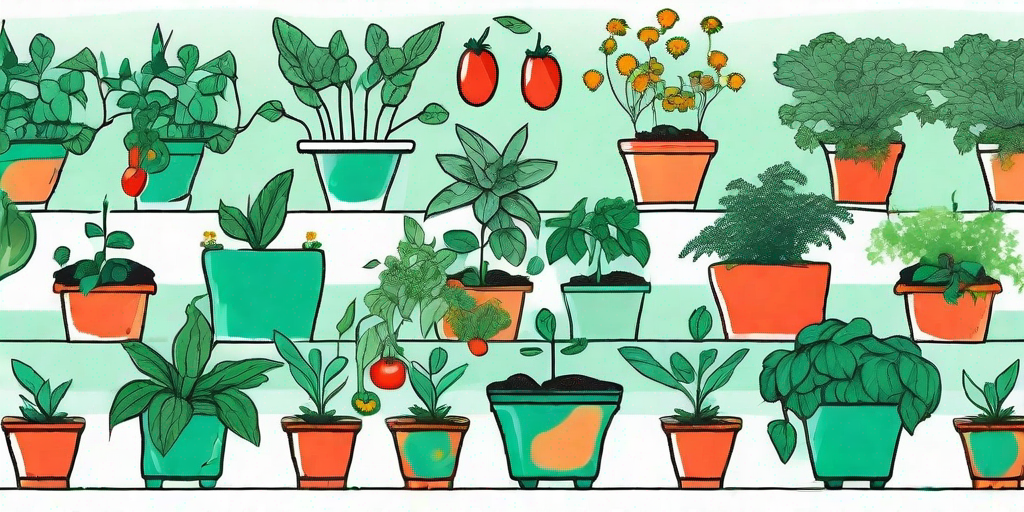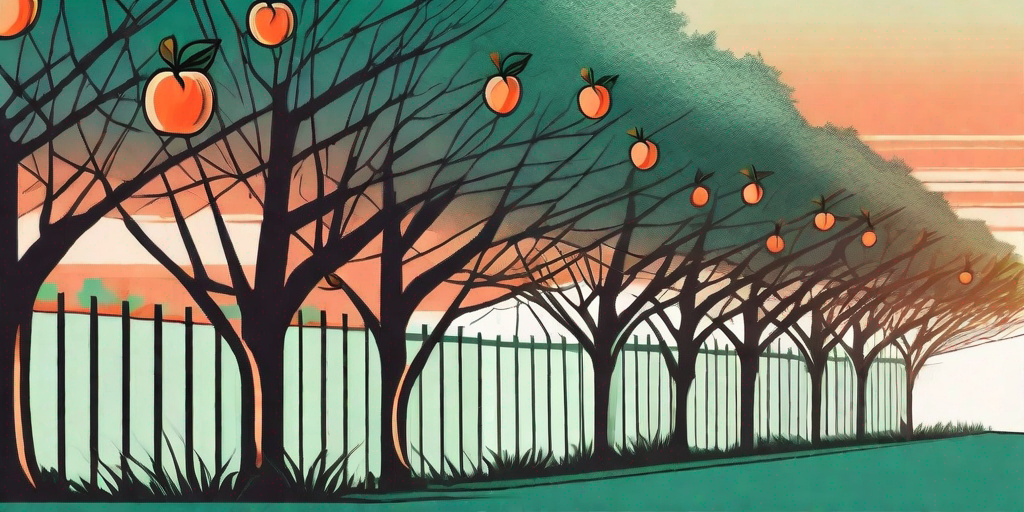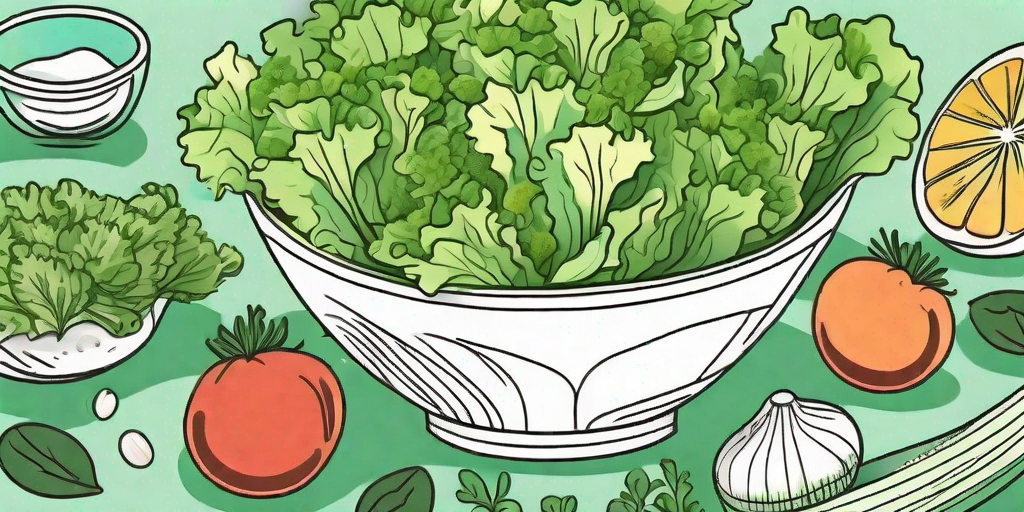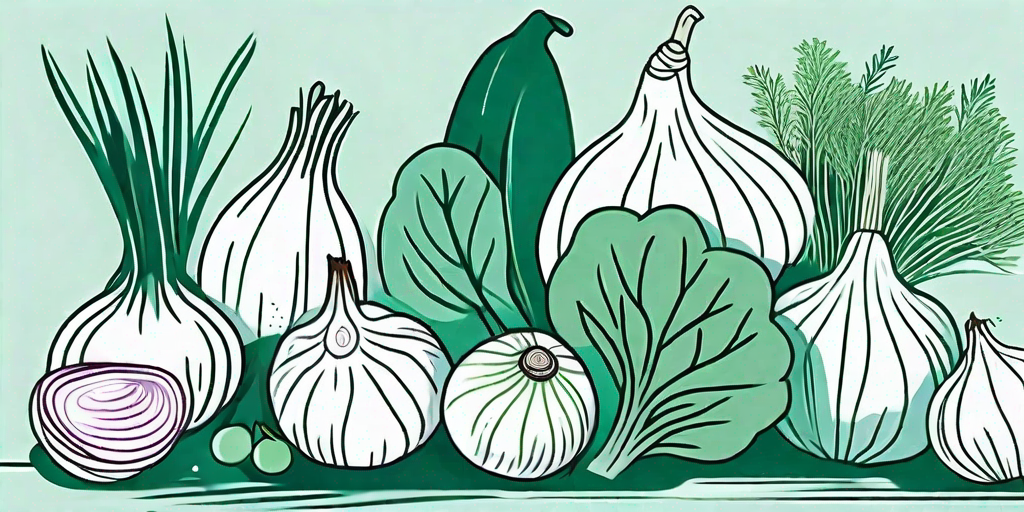
Are your pepper plants feeling a little lonely? Are you looking to spruce up your garden with some new green besties? Well, you've come to the right place! In this article, we will delve into the wonderful world of companion planting and explore the perfect plants to keep your peppers company. So put on your gardening gloves and get ready to optimize your pepper patch like a pro!
Enhancing Your Pepper Garden with Companion Plants
Companion planting is like the ultimate "playdate" for your plants. It's all about finding the perfect friends who will not only keep your peppers happy and healthy but also enhance their growth. By strategic plant placement, you can encourage pollination, deter pests, and even improve the flavor of your precious peppers.
When it comes to choosing companions for your peppers, variety is the spice of life! Different plants offer unique benefits, so don't limit yourself to just one type. Let's explore some of the top contenders that will make your pepper garden the envy of the neighborhood.
The Perfect Herbs to Grow Alongside Peppers
Herbs and peppers go together like peanut butter and jelly. Not only do they add a delightful aroma and flavor to your garden, but they also repel unwanted pests with their natural fragrances. Consider planting basil, dill, or oregano near your peppers to ward off those pesky aphids and spider mites. Plus, you'll have the makings of a delicious homemade pizza sauce right at your fingertips!
Did you know that peppers and herbs are also fabulous cooking companions? Just imagine whipping up a spicy salsa with freshly picked cilantro or adding a kick to your marinade with some spicy jalapenos. Your taste buds will thank you!
In addition to basil, dill, and oregano, there are other herbs that can be fantastic companions for your peppers. For instance, rosemary not only adds a fragrant touch to your garden but also repels pests like mosquitoes and cabbage moths. Thyme, with its aromatic leaves, can help deter whiteflies and cabbage worms, ensuring that your peppers grow undisturbed.
Vegetables That Thrive in the Company of Peppers
Why stop at herbs when you can invite some veggies to the party too? Certain vegetables make excellent companions for peppers, creating a harmonious growing environment. Consider planting tomatoes alongside your peppers for a match made in garden heaven. These two beauties not only complement each other visually but also benefit from each other's presence.
Tomatoes emit a natural chemical that repels pests like nematodes, which can harm peppers. In return, peppers provide some shade to their tomato friends, preventing the scorching sun from wilting their leaves.
Another veggie that loves the company of peppers is the trusty onion. Not only do they deter pests with their strong aroma, but onions also help suppress weeds, allowing your peppers to shine in all their glory. Time to whip up some delicious fajitas with your very own homegrown peppers and onions!
While tomatoes and onions are fantastic companions for peppers, there are other vegetables that can thrive alongside them. For example, cucumbers can provide a natural trellis for your peppers to climb, saving space in your garden. Additionally, cucumbers have a high water content, which can help keep the soil moist and provide a cooling effect for your peppers during hot summer days.
Another great companion for peppers is the zucchini. Zucchini plants have large leaves that can provide shade to the pepper plants, protecting them from excessive heat. Additionally, zucchini plants have shallow roots, which means they won't compete too much with the peppers for nutrients in the soil.
Adding a Pop of Color with Companion Flowers
Who says a pepper garden can't be visually stunning? By incorporating companion flowers, you can turn your garden into a vibrant work of art. Marigolds, with their bright yellow and orange petals, are not only gorgeous but also act as powerful pest deterrents. Plant them alongside your peppers, and watch as they keep aphids and nematodes at bay.
But let's delve deeper into the world of marigolds. These beautiful flowers belong to the Tagetes genus, which includes approximately 56 species. Native to the Americas, marigolds have been cultivated for centuries for their medicinal and ornamental purposes. In addition to their vibrant colors, marigolds also possess a distinct aroma that helps repel pests. Their strong scent is particularly effective in deterring insects like mosquitoes and whiteflies.
Marigolds are not only beneficial for pest control but also for the overall health of your garden. Their roots release a chemical compound called alpha-terthienyl, which helps to suppress harmful nematodes in the soil. Nematodes are microscopic worms that can cause damage to the roots of plants, leading to stunted growth and reduced yield. By planting marigolds alongside your peppers, you create a natural barrier against these destructive pests.
Now, let's move on to another stunning companion flower – lavender. With its delicate purple blooms and soothing fragrance, lavender adds a touch of elegance to any garden. But lavender is not just a pretty face; it also plays a vital role in attracting beneficial insects.
Lavender belongs to the Lamiaceae family and is native to the Mediterranean region. It has been used for centuries in herbal medicine, culinary applications, and even as a natural fragrance. But what makes lavender truly special is its ability to attract pollinators like bees and butterflies.
Bees are essential for the pollination of many plants, including peppers. By planting lavender near your pepper garden, you create a haven for these hardworking insects. The nectar-rich flowers of lavender act as a magnet, drawing bees to your garden. As the bees visit the lavender blooms, they inadvertently transfer pollen from the pepper flowers, ensuring a bountiful harvest.
In addition to bees, lavender also attracts butterflies. These delicate creatures not only add beauty to your garden but also play a crucial role in pollination. Butterflies are known for their ability to carry pollen on their bodies as they flit from flower to flower. By providing them with a food source like lavender, you encourage their presence in your garden, increasing the chances of successful pollination.
So, by incorporating marigolds and lavender into your pepper garden, you not only add a pop of color but also create a thriving ecosystem. The marigolds act as pest deterrents, protecting your peppers from harmful insects, while the lavender attracts essential pollinators like bees and butterflies. With these companion flowers, your garden will not only be visually stunning but also productive and abundant.
Plants to Keep Away from Your Pepper Patch
Now that we've covered the best companions for your peppers, let's talk about the plants you should steer clear of. Just like in any social circle, not everyone gets along, and your peppers are no exception.
First on the "stay away" list is fennel. While it may be a fine addition to your spice rack, fennel is not a good neighbor for your peppers. It secretes substances that inhibit the growth of nearby plants, which can negatively impact the health and yield of your precious peppers. Sorry, fennel, but you're not invited to this garden fiesta.
Another unwanted guest in your pepper patch is the potato. Now, we're not saying potatoes are bad, but they simply don't mix well with peppers. Potatoes and peppers are susceptible to similar pests and diseases, so planting them together increases the risk of infestation. Let's keep these two apart, shall we?
Frequently Asked Questions (FAQs)
What are companion plants?
Companion plants are plants that are beneficial to each other when grown in close proximity. They provide mutual support, helping with pollination, pest control, and improving overall plant health.
Why should I companion plant in my pepper garden?
Companion plants offer a range of benefits for your peppers. They can attract beneficial insects, repel pests, improve flavor, and create a visually appealing garden.
Can I companion plant with other vegetables?
Absolutely! Companion planting works well with many vegetables. Just make sure to research the specific needs and preferences of each plant before pairing them together.
Are there any plants that should not be companion planted with peppers?
Yes, plants like fennel and potatoes should be kept away from pepper plants. They can inhibit growth and increase the risk of pests and diseases.
Do I need to companion plant every type of pepper?
Not necessarily. Companion planting is optional, and you can choose which peppers you want to companion plant based on your preferences and the specific needs of each pepper variety.
So there you have it, fellow pepper enthusiasts! By selecting the perfect companions for your pepper garden, you can create a thriving ecosystem that not only enhances the growth of your beloved peppers but also adds an extra dose of visual appeal and flavor. Happy companion planting!











